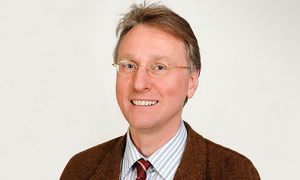What does addiction mean?
The psychological and physical dependence on substances, which initially have mostly a positive or even euphoric effect, is called addiction. The international classification of diseases defines addiction as, among other things, the strong desire or compulsion to consume alcohol or another substance, combined with a reduced ability to control the beginning, end, and amount consumed. It is characterized by physical withdrawal syndrome upon cessation or reduction of consumption, as well as the development of an increased tolerance to the substance consumed.
Causes
The underlying cause is a dysfunction of various neurotransmitters in the brain. The addictive substances change the connections and reactions in the brain's reward system. If the stimuli triggered by the addictive substance are absent, an uncontrollable craving for the substance arises, which impairs one's ability to make free decisions. Since the body metabolizes the addictive substances more quickly over time, the effect decreases, which is called tolerance. This explains the characteristic dose increase in an addictive disorder.
Treatments offered
Our therapy is aimed at patients suffering from alcohol, drug, and/or medicine addiction, with the exception of heroin or other drugs administered intravenously. Unfortunately, we cannot offer methadone substitution. For people who wish to quit smoking, we refer them to suitable programs offered by other providers, such as health insurance companies. Our therapy is always based on the S3 guidelines, which provide standardized and proven concepts.
On our main ward 4-West, in the affiliated special outpatient clinic, and in the day-care or outpatient post-inpatient program, we offer all the prerequisites of qualified withdrawal. The aim of all therapy is the complete abstinence from the addictive substance.
Admission requires preliminary consultation, which you must arrange with us yourself by calling +49 931 201-76300.
Withdrawal
After a comprehensive physical and psychological examination, as well as a precise analysis of the addiction problem and possible other mental illnesses, we develop an individual therapy concept.
The withdrawal is divided into different phases and lasts approximately three weeks:
Crisis intervention
Overdose or discontinuation of material addictive substances such as medication, alcohol, or drugs can sometimes lead to life-threatening physical symptoms. The treatment of such an acute phase lasts from a few days up to two weeks and should be carried out under medical supervision in a clinic of psychiaty or internal / general medicine. The withdrawal symptoms can be alleviated with medication. Even in this phase, therapeutic options are discussed how to achieve long-term withdrawal from addiction.
Qualified withdrawal
A qualified withdrawal program involves several therapeutic measures in a medically holistic approach and lasts between two and three weeks. It essentially comprises the following steps, either sequentially or in parallel:
- Removal of the substance from the body, usually with drug support to alleviate the withdrawal symptoms.
- Already during this detoxification phase, we apply supportive psychotherapeutic and socio-pedagogic measures.
These include, for example:- Supportive talks to boost self-motivation
- Individualized disorder-specific group therapy
- Analysis and elaboration of the reasons that have led or lead to addictive behavior
- Resolution of psychosocial problems
- Provision strategies to prevent relapse
- Treatment of concomitant mental disorders
Treatment of concomitant mental disorders
If the patient suffers from a concomitant mental disorder, this condition will be assessed and treated in the second phase of qualified withdrawal. Depending on the severity of the disorder, treatment is provided as an outpatient program, day-care program, or on one of our main wards. In the case of addictions, concomitant diseases are usually cognitive disorders, psychoses, bipolar disorders, or depression. The therapy is based on so-called disorder-specific programs that focus on the respective disorder. It comprises various elements such as drug and psychotherapeutic treatment, depending on the specific case, and is seen as a multimodal concept.
Relapse prevention
Physical and psychological withdrawal with anxiety, irritability, and disturbed sleep rhythm is the period with the greatest risk of relapse if there is no sufficient supporting structure and intensive therapeutic care.
However, once this phase is over, active future planning becomes more and more important, although this remains an integral part of qualified withdrawal from the very outset
This includes:
- Motivating conversations that convey strategies towards relapse prevention and strengthening self-confidence
- Cognitive strategies that change addictive thoughts and replace them with new, helpful thought structures
- Development of tangible and practical ways of support, such as strength-giving rituals, dealing with emotions, or courses of action that have been difficult to implement so far
- Exposure training, which focuses on rejecting the addictive substance in society or in certain situations
- Individual future planning
- Independently planned leisure activities
- Supplementary group offers, which take into account gender-specific differences in dependency behavior
Therapeutic relapse prevention is integrated into inpatient treatment as a part of the withdrawal program.
Telephone consulting hours
In case of emergency or by appointment we also offer daily telephone consultation every weekday. You can reach us during business hours on phone: +49 931 201-76376.
Aftercare
Following alcohol withdrawal, we offer a special aftercare program that can last up to one year. This outpatient support program includes a weekly meeting with the integration group as well as regular blood and breath alcohol checks. We also work closely with self-help groups and addiction counseling centers in the Würzburg area, such as Alcoholics Anonymous (AA), Blue Cross, Caritas, the Kreuzbund, the Diakonie, the Würzburg Youth and Drug Counseling Center, and the Red Cross.
Contact
Appointment
Policlinic
Phone: + 49 931 201-77800
E-Mail: ep_poli@ukw.de
In-patient care
Phone: +49 931 201-76050
E-Mail: ep_poli@ukw.de
Address
Klinik und Poliklinik für Psychiatrie, Psychosomatik und Psychotherapie des Universitätsklinikums | Margarete-Höppel-Platz 1 | 97080 Würzburg | Deutschland

